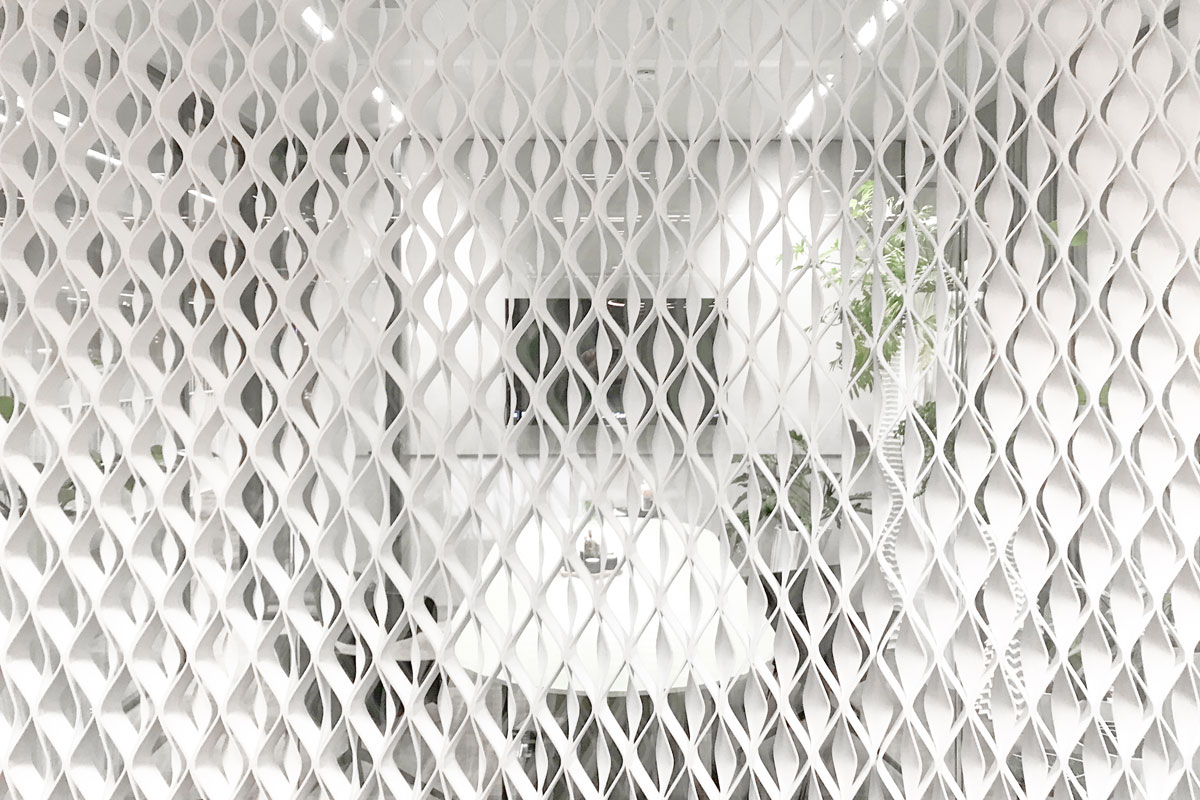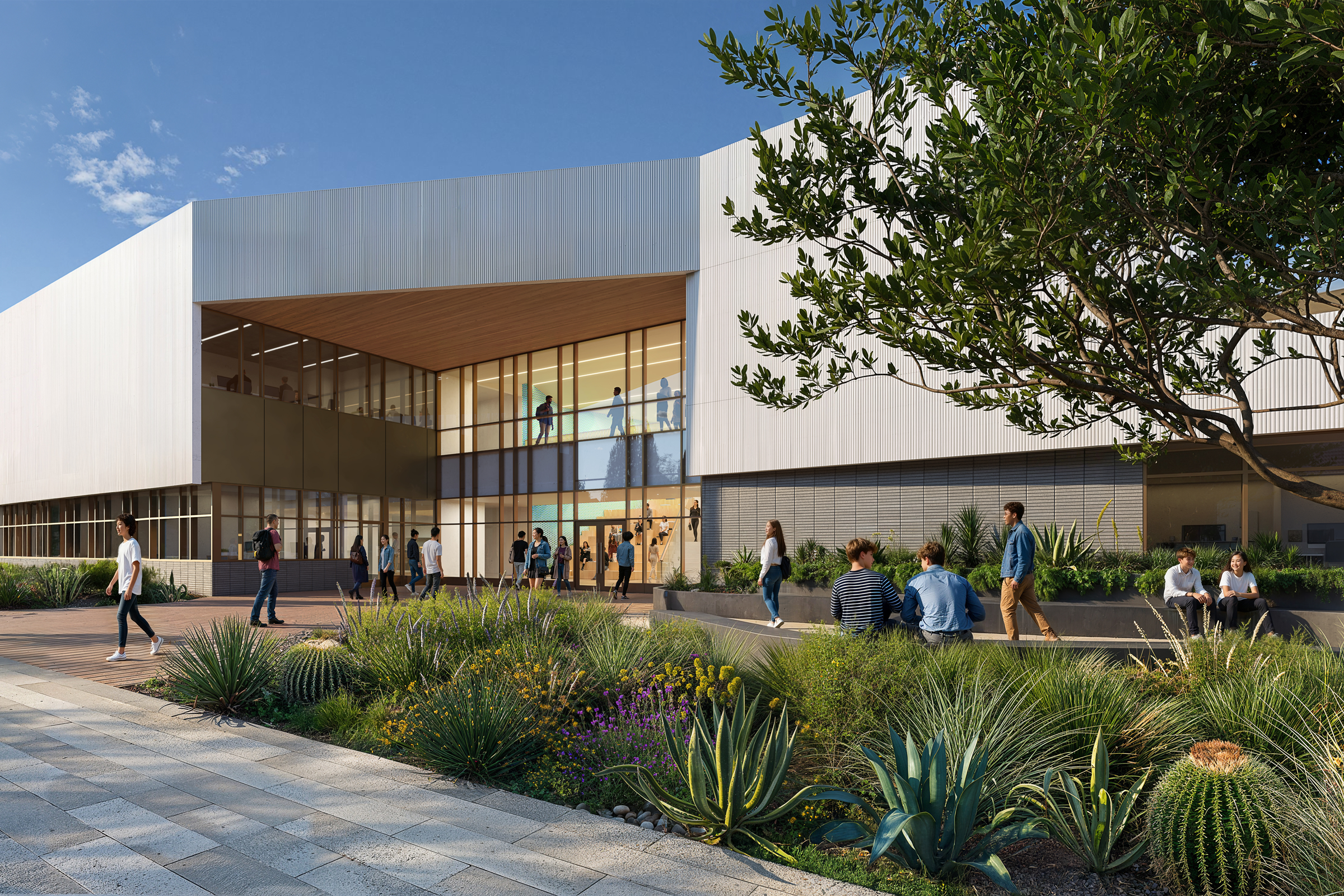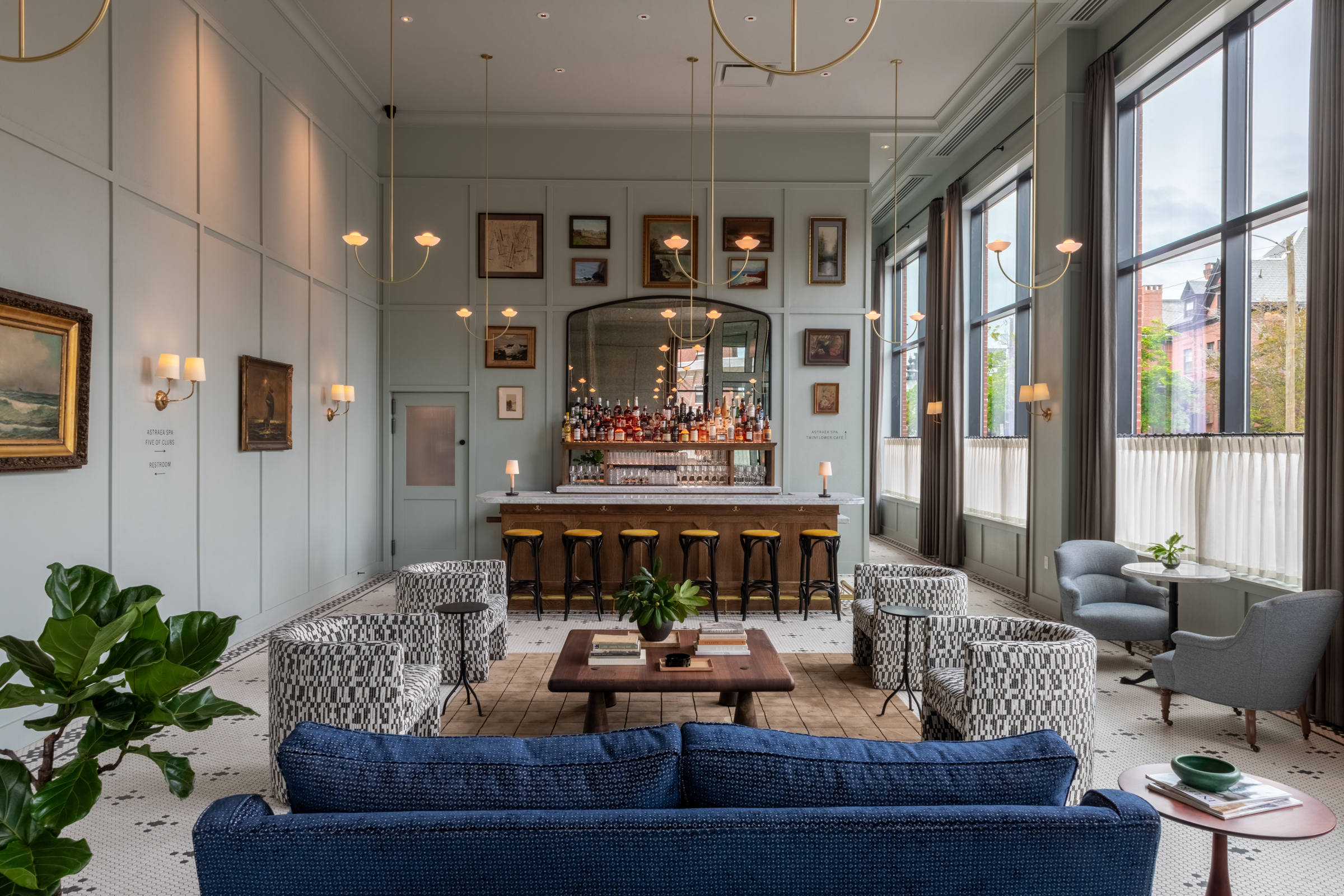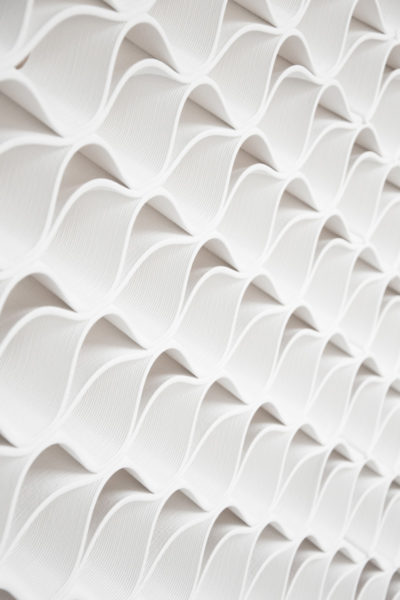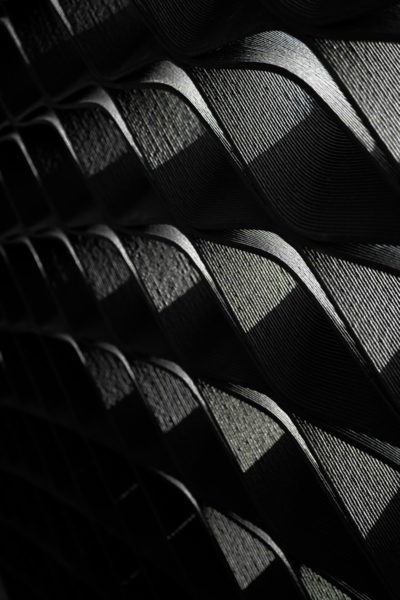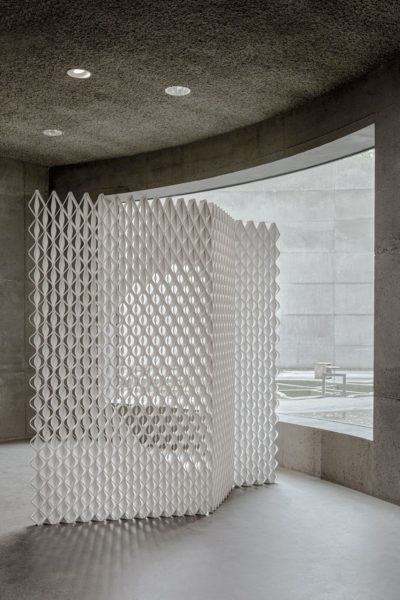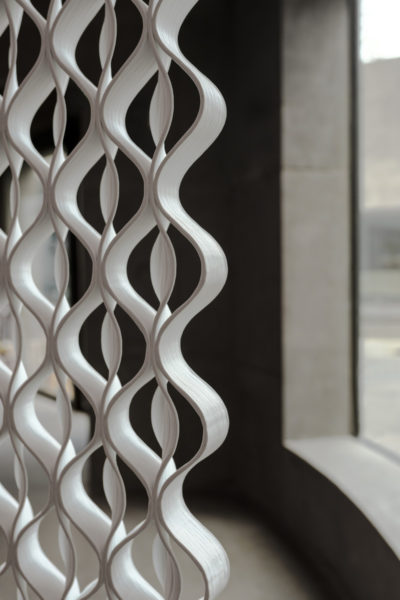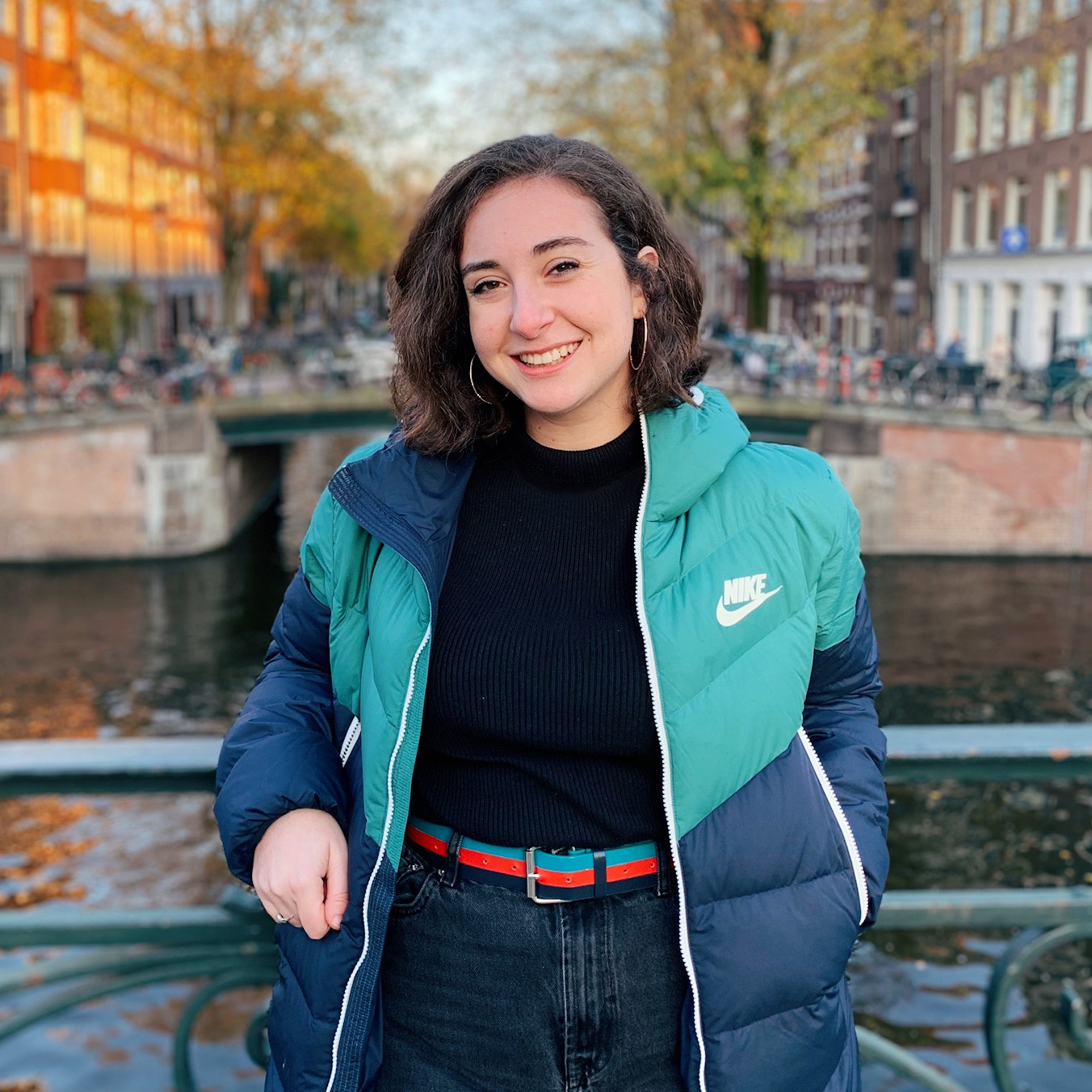Story at a glance:
- Aectual, a Dutch sustainable architecture company, launched a design-to-delivery platform and commercial web shop for consumers.
- The company’s custom-made Curve Panels are 3D-printed with bio-based materials in a 100% circular process.
- Through Aectual’s Circular Service, the Curve Panels can be shredded and directly reprinted into new products.
The construction sector accounts for nearly 40% of global carbon dioxide emissions. Aectual, a Dutch sustainable architecture company, wants to change that.
Through a 100% circular, waste-free manufacturing process, Aectual’s Curve Panels raise the bar for sustainable interior design. The company’s novel 3D printing technology ensures no excess materials go to waste, and their specialized bio-based printing material contributes to more than a 60% reduction in carbon dioxide emissions compared to traditional counterparts.
After use, the panels can be returned through Aectual’s Circular Service, where the materials are shredded and directly reprinted into new products.
“Our 3D printing technique has always been an entirely waste-free production method, but since now our material is also fully circular, it significantly reduces material usages. Soon our materials can even be leased,” says Hedwig Heinsman, cofounder and creative director of Aectual.
Aectual aims to increase accessibility to custom-made sustainable architecture. In early 2021, they announced the global beta launch of their design-to-delivery platform and commercial web shop for consumers. Aectual’s Room Dividers, which are based on the Curve Panels, can now be purchased online.
Here are just a few of the design details we love about Aectual’s Curve Panels.
1. Plant-Based Materials
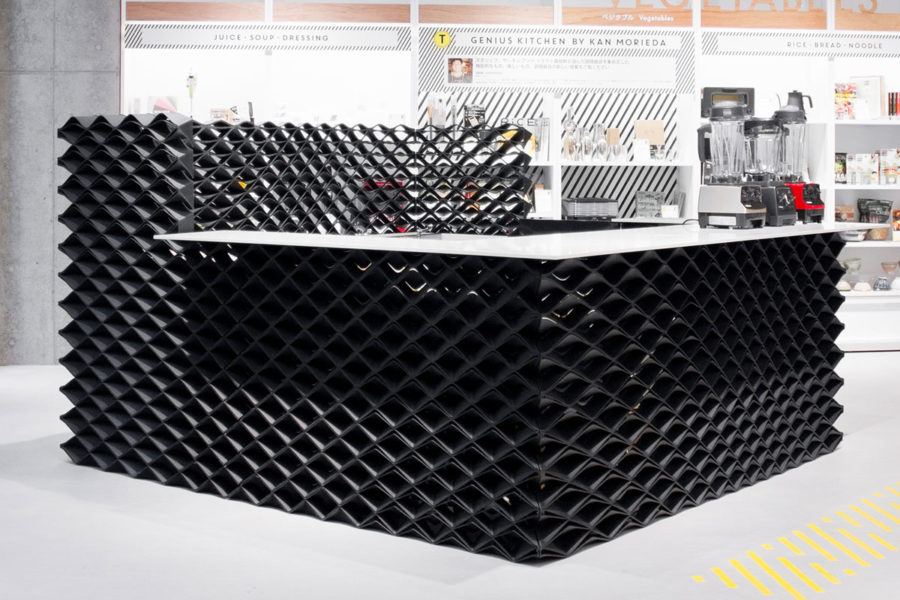
Photo courtesy of Aectual
Aectual partnered with Henkel, a German manufacturing company, to create a renewable, plant-based printing material that is free from environmentally harmful elements. Sourced from natural linseeds, the plant-based plastic creates a ceramic matte appearance with ridges that complement the panels’ curves.
The bio-based printing material can also be shredded and reprinted into new panels up to seven times.
2. Endless Customizability
- Photo courtesy of Aectual
- Photo courtesy of Aectual
Versatility meets functionality with Aectual’s endless customizable features. The panels can be designed with all imaginable colors (RAL, NAR, and Pantone) and transformed into a variety of patterns and textures.
Aectual’s proprietary robotic XL 3D printing technology “allows us to create very intricate designs that are, for instance, very exact and geometric, or that can be flowy, mimicking the unmistakable handwriting of a designer, that way creating truly ‘signature’ pieces,” says Heinsman.
The customized textures are designed through cell shapes—the individual units that build each panel. You can choose one of Aectual’s pre-suggested cell shapes, or start with a blank canvas and design your own.
3. Shape Light and Sound
- Photo courtesy of Naomi Jamie Studio
- Photo courtesy of Naomi Jamie Studio
The panels’ curves and ridges create new possibilities for light and acoustic design. Opening or closing cell shapes can optimize natural light and shade, and they can even be custom-designed to enhance indoor LED lighting. The curved shapes also redirect sound waves and decrease noise; closing the cells can partially block sound altogether.
The vast customizability of the 3D-printed Curve Panels adds freedom and personalization to sustainable design. As Aectual continues to expand their online platform, they aim to bring custom and high-quality products to everyone.
“We believe our approach has the potential to totally change architecture, city making, and community building, while also helping to save the planet and make living environments more healthy, affordable, and personal,” Heinsman says.

